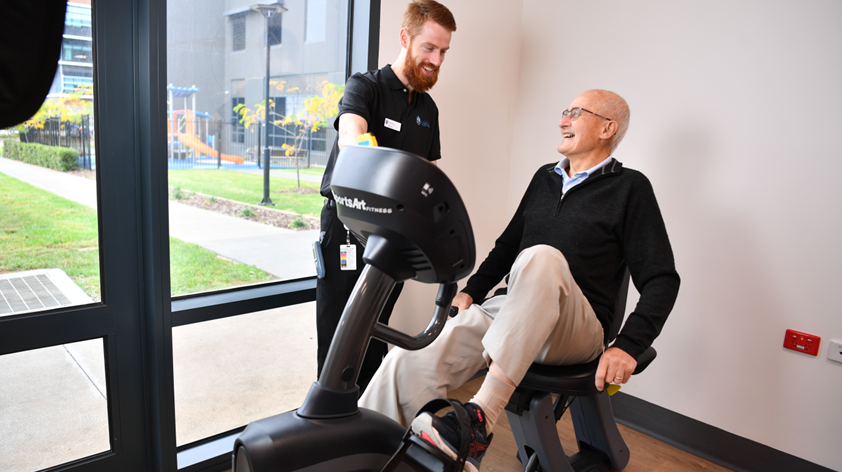Walking in their red socks
by Tom, Senior Physiotherapist at SVPHW
- Home
- Patient News
- Walking in their red socks
As I walk through the hospital doors every morning there is no spike in my heart rate, no fear or anxiety. For me, I have come through those doors to do a job that I love. I get to see my colleagues who I consider friends and be a part of an organisation that helps people on their health journey.
As the doors open I acknowledge the person walking in front of me. I do not recognise them. They are not a colleague but most likely a patient. They are here not because they want to be but because they need to be. If the thermal scanner at the entrance of the hospital could read emotions as well as their temperature, what a story it could tell.

Every person has their own experience, their own fears, goals and expectations. Tapping into what these are is essential to creating a positive experience and making sure that when that person leaves through those same doors that they feel calm and empowered. For me I believe that empathy is the most important quality a health professional can have. Putting yourself in their shoes, or more often red grip socks, and treating them not how I would like to be treated, but how they would like to be treated. There is no one size fits all model for it.
I often reflect back on when I was studying Physiotherapy, more than 10 years ago now. To study to be a Physio you generally needed to have a high ‘enter score’ as it was known back then. I scraped in by the skin of my teeth and studied alongside individuals who were far more intelligent than I was.
Incredible people but they often lacked the people skills needed to be good clinicians. When they pop up on my social media channels these days I often click in to their profiles to see what they are up to. Very few are still in the Physiotherapy field and actually many changed paths prior to graduation. They have found success in their lives but potentially they lacked a degree of empathy needed in a patient fronting profession.
When I enter into a patient’s room I am entering their universe. Reading that room is incredibly important. Taking note of the sick bag that they are grasping, or the wet flannel on their forehead, observing the way they move or the tone of their voice all help me to adjust my attitude and make them feel comfortable, cared for and safe.
Over my career I have worked with many people with whom I did not share a common language. I always find it amazing how much we say without saying a thing. A person’s facial expression often tells you far more than their words ever will, and on that a patient’s words will often misguide you because they want to be brave. A persons eyes don’t lie. When you look into their eyes you know the truth. This connection between the patient and the health care professional is the real difference between a good and a bad experience in hospital.
A Reflection by Thomas O’Sullivan


